2025
Academy for Public Scholarship on the Built Environment:
HOUSING EQUITY
2025 Cohort: Housing Equity
The Association of Collegiate Schools of Architecture (ACSA) and the ACSA Research + Scholarship Committee, in partnership with The OpEd Project , are pleased to announce the 2025 Cohort for the Academy for Public Scholarship on the Built Environment: HOUSING EQUITY.
This cohort brings together twelve architecture faculty whose scholarship addresses housing equity and seeks to influence the policies and narratives shaping the built environment. They will participate in The OpEd Project’s virtual “Write to Change the World” workshops, connecting participants with diverse identities, voices, and ideas. Cohort members will also join a series of training modules led by experts on issues of housing equity and public scholarship, including members of the AIA Housing & Community Development Knowledge Community and allied organizations working toward housing equity.

The cohort will present participating faculty with an extended training opportunity to expand the impact of their research and scholarship beyond the academy. After the workshop, cohort members will have up to three months of access to The OpEd Project’s Mentor-Editor network to get individualized feedback on their op-ed drafts to double their chances of publishing success. By the end of the training, cohort members are expected to complete the workshops and submit an op-ed for publication in a local, regional, or national newspaper.
The 2025 Cohort includes:

JEFFREY CARNEY
University of Florida
Jeff Carney is an Associate Professor in the University of Florida School of Architecture and Director of the Florida Institute for Built Environment Resilience (FIBER). A registered architect and certified urban planner, his work focuses on community-scale adaptation at the intersection of housing, neighborhoods, ecosystems, and hazards.
Read More
His current research includes projects in Port St. Joe, Jacksonville, Cedar Key, and coastal Lee County, FL, supporting communities in balancing health, housing, and environmental needs in the face of increasing disaster risk. Jeff leads the GulfSouth Studio, funded by the National Academies of Sciences Gulf Research Program, which integrates community engagement, advanced computational tools, and coastal resilience through design education. He also co-leads the JaxTwin and Florida Digital Twin initiatives, advancing the use of urban digital twins for planning and decision-making at local and state levels.
Before joining UF, Jeff directed the LSU Coastal Sustainability Studio, where he led development of the Louisiana Resiliency Assistance Program (LRAP), designed Shifting Foundations, a 10,000-square-foot exhibition for the LSU Center for River Studies, and co-led the award-winning Changing Course design competition proposal The Giving Delta. He also launched the Inland from the Coast project, supported by the National Academies and the Robert Wood Johnson Foundation, to study upriver flooding in Baton Rouge.
Jeff has led over 45 funded projects totaling more than $14 million. His work has received numerous national and state-level awards and has been exhibited internationally, including at the Venice Biennale.
He holds a bachelor’s degree in architecture from Washington University in St. Louis and dual master’s degrees in architecture and city and regional planning from UC Berkeley, where he was awarded the Branner Fellowship for global research on modernist neighborhood design—an experience that continues to inform his work today.

FRANCESCO CIANFARANI
University of Oklahoma
Francesco Cianfarani is an architect and educator, currently serving as Assistant Professor of Architecture at the Christopher C. Gibbs College of Architecture, University of Oklahoma. His research operates at the intersection of architecture and urban design, with an emphasis on housing.
Read More
Cianfarani began his academic career at Sapienza University of Rome, where he taught at both the School of Architecture Valle Giulia and the School of Civil and Industrial Engineering, Rieti Campus. He earned his PhD in Architectural and Urban Design from Sapienza’s DiAP Department, contributing to research programs addressing the transformation of Italy’s social housing stock (DiAP Quattro Quartieri, 2014–2017; MIUR PRIN 2007).
At the University of Oklahoma, Cianfarani works on the Oklahoma Housing Needs Assessment, a statewide research initiative sponsored by the Oklahoma Housing Finance Agency (OHFA), co-led with Professors Shawn Schaefer, Ronald Barnes, and Joseph Havlicek. The project involves the development of a geospatial database and web portal aimed at supporting local housing providers in identifying gaps in affordable housing across tenure types, income levels, and unit sizes.
In parallel, he directs applied research initiatives focused on infill housing strategies for historically disinvested neighborhoods in Oklahoma City. These efforts include collaborations with local communities and nonprofit organizations to explore design approaches that support reinvestment, affordability, and the reuse of vacant housing stock.
In his teaching, Cianfarani explores topics of housing equity through design studios, cross-listed Urban Design Methods courses, and seminars.
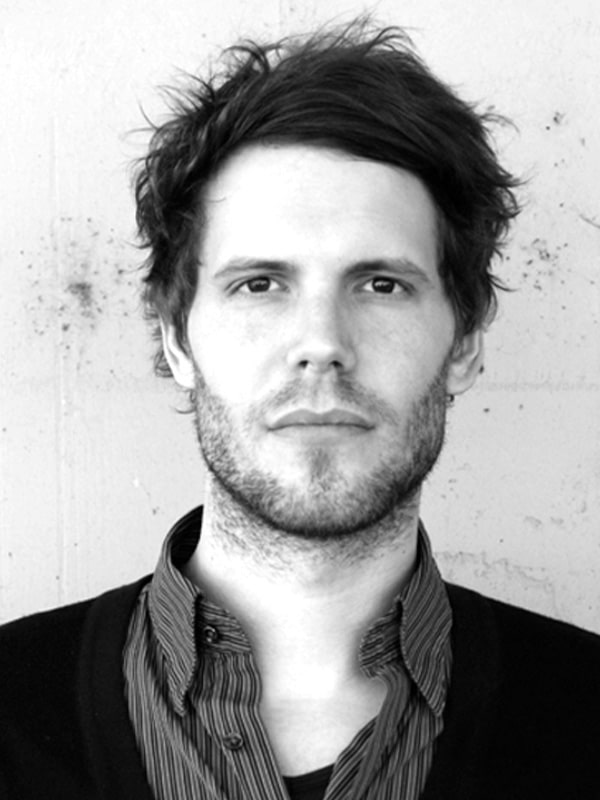
SASCHA DELZ
University of Southern California
Dr. Sascha Delz is an architect, researcher, and educator working at the intersection of architecture, urban design, and urban studies. His research investigates how political-economic frameworks shape architecture, urban form, and living environments with a particular focus on how co-operative housing and other non-speculative, people-centered models can foster both innovative and affordable housing design and delivery.
Read More
Sascha has practiced as an architect in Zurich and New York and has taught architectural, urban design as well as interdisciplinary research and design workshops. He has been a research fellow at the Future Cities Laboratory in Singapore and at the Ethiopian Institute of Architecture, Building Construction and City Development of Addis Ababa University. Sascha is currently an Assistant Professor of Architecture at the University of Southern California where he coordinates undergraduate housing studios, teaches in the postgraduate Master of Advanced Architectural Research Studies in City Design + Housing (M.AARS CD+H) program, and works on developing the Co-op Urbanism Lab. He is also the co-founder of Co-Urbanism, a design initiative exploring new ways of adapting, transforming, and acting within our built environments in a more resilient and equitable manner.
His writings have appeared in a range of books, journals, and magazines, including International Development Policy or Trialog. He is the co-author and co-editor of the book Housing the Co-op – A Micro-Political Manifesto. Sascha holds a Doctor of Science and a Master of Science in Architecture from the Swiss Federal Institute of Technology Zurich (ETH Zurich).
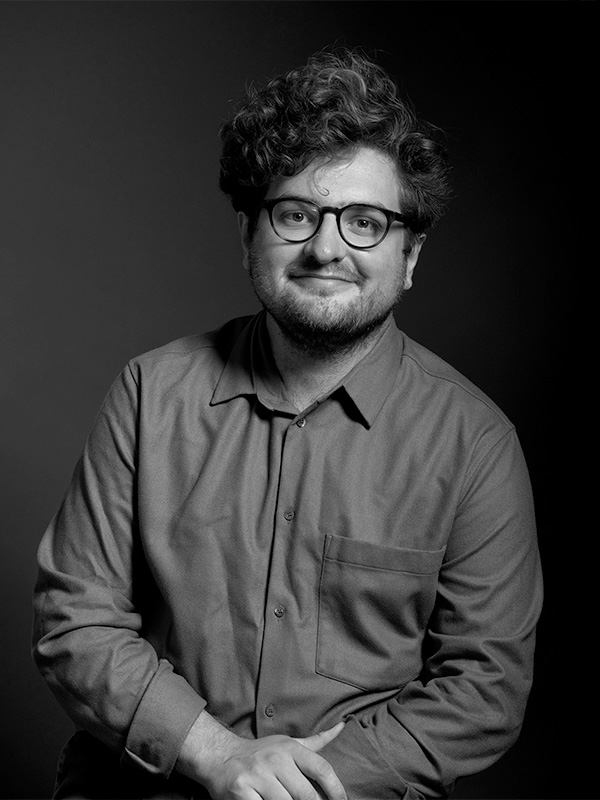
WES HIATT
Lehigh University
Wes Hiatt, AIA, NCARB, is an Assistant Professor of Architecture at Lehigh University and Co-Director of Lehigh’s Small Cities Lab, where his research focuses on coalition building, urban change, and community-led design visioning projects. He is deeply committed to reorienting architects away from traditional technocratic thought and market-based services, working instead through partnership coordination and place-based design proposals to imagine necessary change alongside communities.
Read More
His work focuses on smaller cities and towns across the United States, which have historically been understudied and underserved relative to larger metros.
Wes’ work has received over $1.6 million in funding from the United States Department of Housing and Urban Development (HUD), the New York State Council for the Arts, the Pennsylvania Housing Finance Agency, and grants from United States Senator Bob Casey and Representative Susan Wild. As an architect, Wes is Managing Principal of Jaff Hiatt Architecture, D.P.C., an architecture practice based in Brooklyn, New York.

JEFFREY KRUTH
Miami University
Jeffrey Kruth is an Associate Professor of Architecture and Director of Graduate Studies at Miami University in Oxford, Ohio, where he leads research and teaching on urban design and housing policy in the American city. With a Master of Architecture and a Bachelor of Arts in Urban and Regional Planning from Miami University, Kruth brings a multidisciplinary lens to the intersections of urban design, policy, and community development.
Read More
Kruth’s work focuses on the social and material legacies of industrial cities and how these histories inform notions of power and expertise in the contemporary city. His recent book, Urban Histories in Practice: Morphologies and Memory, co-edited with Steven Rugare, explores global case studies on industrialization and urban transformation, offering insights into how memory and place influence equitable development strategies.
At Miami University, Kruth is an affiliate faculty at the Center for Community Engagement in Cincinnati’s Over-the-Rhine neighborhood, connecting students with community partners around issues of housing, education, public space, and identity. His teaching integrates critical urban theory with design practice, preparing future architects to address systemic inequities through spatial design.
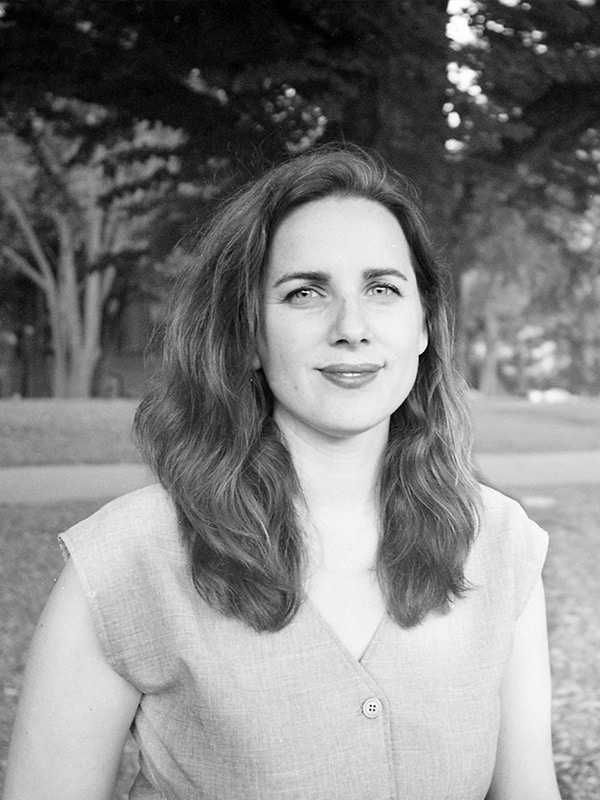
KAREN KUBEY
University of Toronto
Karen Kubey is a New York- and Toronto-based urbanist specializing in housing design and spatial justice. She is the editor of Housing as Intervention: Architecture towards Social Equity (Architectural Design, 2018) and served as the first executive director of the Institute for Public Architecture. Kubey co-founded the New York chapter of Architecture for Humanity (now Open Architecture/New York) and co-founded and led the New Housing New York design competition.
Read More
Holding degrees in architecture from the University of California, Berkeley and the Columbia University Graduate School for Architecture, Planning and Preservation (GSAPP), Kubey began her career as a designer of below-market housing. She has received support from the New York State Council on the Arts, MacDowell, and the Canadian Social Sciences and Humanities Research Council, and has completed a Fulbright U.S. Scholar fellowship at the Universidad Torcuato Di Tella in Buenos Aires, Argentina. Currently Assistant Professor of Architecture at the University of Toronto, Kubey has taught at Pratt Institute and Columbia GSAPP and was a 2019-20 Faculty Fellow in Design for Spatial Justice at the University of Oregon. She convenes the American Institute of Architects Right to Housing Working Group.

ASMA MEHAN
Texas Tech University
Dr. Asma Mehan is an architect, educator, and researcher specializing in architectural humanities and critical urban studies. She currently serves as an Assistant Professor at Texas Tech University’s Huckabee College of Architecture, where she directs the Architectural Humanities and Urbanism Lab (AHU_Lab). Additionally, Dr. Mehan is the Editor-in-Chief of plaNext – Next Generation Planning, an international open-access journal published by the Association of European Schools of Planning (AESOP).
Read More
Dr. Mehan earned her Ph.D. in Architecture, History, and Project from Politecnico di Torino in 2017. Her academic journey includes research fellowships at institutions such as Leiden University, the University of Porto, and the ZK/U Center for Art and Urbanistics in Berlin. She has also held visiting positions at Deakin University in Melbourne and EPFL in Lausanne. Dr. Mehan has taught at various universities across Europe, Asia, the UK, and Australia, including TU Delft, TU Munich, and Deakin University.
Dr. Mehan is the author of four books: Tehran: From Sacred to Radical (Routledge, 2022), Kuala Lumpur: Community, Infrastructure, and Urban Inclusivity (Routledge, 2020), The Affective Agency of Public Space: Social Inclusion and Community Cohesion (De Gruyter, 2024), and After Oil: A Comparative Analysis of Oil Heritage, Urban Transformations, and Resilience Paradigms (Springer, 2025). She has been recognized with awards from organizations such as the Association of European Schools of Planning (AESOP), the European Architectural History Network (EAHN), and the Society of Architectural Historians (SAH).
Having authored over seventy articles and essays, Dr. Mehan has also made significant contributions to visual media through curated exhibitions in international venues such as the 3rd Biennale of Architecture and Landscape in Paris, Versailles 2025, and the Venice Biennale Exhibition 2023 in Venice, Italy.
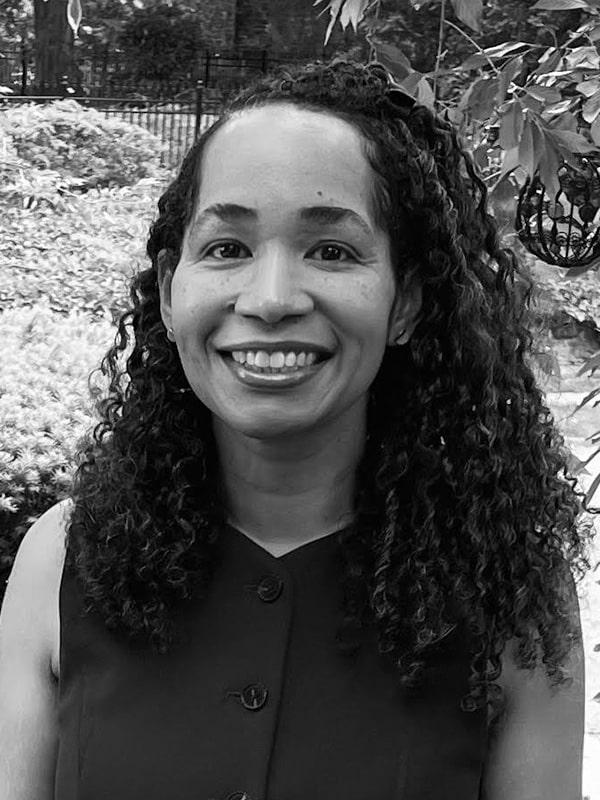
RASHIDA NG
University of Pennsylvania
Rashida Ng is a licensed architect, educator, and scholar whose research lies at the intersection of climate change, racial equity, and housing justice. She is Presidential Associate Professor and Chair of Undergraduate Architecture at the University of Pennsylvania’s Weitzman School of Design. Her work explores how design can be a tool for collective care, repair, and resistance—particularly in communities shaped by disinvestment, environmental racism, and displacement.
Read More
Ng’s current teaching and community-engaged partnerships focus on housing as a site of both struggle and possibility. In 2024, she led a public visioning workshop that proposed community-driven alternatives to the now-abandoned proposal for a 76ers arena in Center City Philadelphia, building on her leadership of the 2023 Housing Justice Futures symposium. These initiatives continue to inform her courses, which include housing justice design studios in Philadelphia neighborhoods, an interdisciplinary humanities seminar on race and climate, and a graduate seminar on spatial justice.
Committed to advancing justice through both practice and pedagogy, Ng uses her writing, research, and leadership roles to confront systemic inequities in architectural education. Her recent and forthcoming publications include the chapter “Reparative Futures: Climate Justice and the Chinatown Stitch in Philadelphia” in Urban Innovation for the Climate Crisis: Design, Policy, and Practice (Routledge, 2025); “Breaking the Chains” in Rethinking the Crit (Routledge, 2022); and the co-edited volume Unknowing Architecture: Lessons from the Edges of Architecture Education (Routledge, 2026). She is also co-editor of Performative Materials in Architecture and Design (Intellect, 2013).
Ng served on the board of the Association of Collegiate Schools of Architecture for six years and was ACSA President in 2019–2020. She is dedicated to cultivating future architects who understand design as a practice of justice, care, and social transformation.

EDWARD PALKA
Columbia University
Eddie is an Associate Research Scholar at the Housing Lab at Columbia University’s Graduate School of Architecture Planning & Preservation (GSAPP). The Lab is exploring policy and design solutions to address the affordable housing crisis and visualize and communicate the problem.
Read More
He is a licensed Architect who has worked in the profession for over a decade – half of that time at SHoP Architects in New York – on a wide variety of project types and scales, ranging from residential towers to a US Embassy, a large tech campus, & multiple mixed-use developments across all phases and various delivery methods. He is a Project Director at Assembly OSM, a modular design-build start-up focused on solving the affordable housing crisis by addressing the mid- and high-rise multi-family markets. This work includes the first modular project and first project in New York State to receive the WELL for Residence Certification, as well as the first fully self-supporting modular high-rise project to receive NYC Department of Buildings approval. He is also an advisor to the WELL Residential Standard and an active member of the AIANY Housing Committee. He recently presented at the ACSA/AIA Intersections Conference, exploring the development of a Collective Ownership model for New York City residential projects and will be presenting at the Construction History Society of American (CHSA) Conference on historic impediments to modular adoption within the United States. Eddie holds a Master of Architecture degree from Columbia University and a Bachelor of Science degree in Architecture from the University of Minnesota.
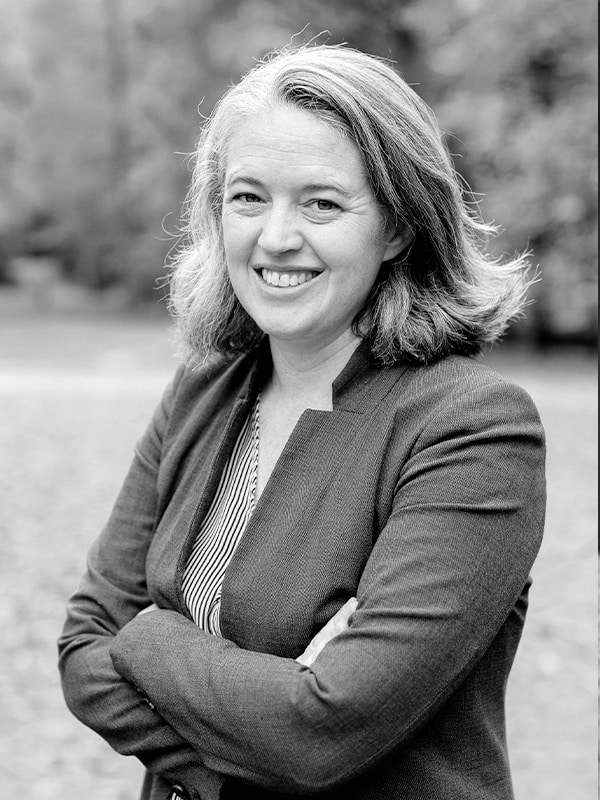
MACKENZIE STAGG
Auburn University
Mackenzie Stagg is an Assistant Research Professor in Auburn University’s School of Architecture and manages the Rural Studio Front Porch Initiative. Established in 1993, Rural Studio gives architecture students a hands-on educational experience while assisting the underserved communities of Alabama’s Black Belt region.
Read More
The Front Porch Initiative aims to extend the impact of Rural Studio’s applied research in housing access and affordability by cultivating scalable, sustainable, and resilient processes for developing homes in under-resourced communities. A graduate of Auburn University, Mackenzie has collaborated with Rural Studio in a variety of capacities over the course of the past twenty years: as student, instructor, and faculty member. Mackenzie’s work at Rural Studio has been intertwined with design work at both architecture offices and design-focused not-for-profit organizations in Alabama, Virginia, and Louisiana. Through her research at Auburn University Rural Studio, Mackenzie works directly with local housing provider partners, regional organizations, and national stakeholders to comprehensively address the challenges of providing equitable access to homeownership opportunities through collaboration, education, and applied research.

HELEN STOPPS
Toronto Metropolitan University
Dr. Helen Stopps, P.Eng is an Assistant Professor in the Department of Architectural Science at Toronto Metropolitan University, where she leads a research program at the intersection of building science, climate adaptation, and housing equity. Her work focuses on how buildings actually perform—and how that performance impacts health, resilience, and justice across urban centres and Northern and remote communities, bridging technical insight and social accountability.
Read More
With a background in engineering and a strong commitment to community-led research, Dr. Stopps uses a mix of qualitative and quantitative methods to explore how building systems interact with environmental stressors and occupants. A core focus of her work is how data can be used not just to monitor performance, but to support local decision-making, shape better policy, and enable community-led housing advocacy. She works in close collaboration with Indigenous and municipal governments, social housing agencies, and interdisciplinary teams to co-create practical, locally grounded approaches to understanding and improving housing performance.
In addition to her academic work, Dr. Stopps leads international research on community-scale equity and sufficiency through the Human-Centred Buildings Network (part of the International Energy Agency’s Annex 95), serves on the board of the Canadian chapter of the International Building Performance Simulation Association (IBPSA), and contributes to guideline development through the American Society of Heating, Refrigerating and Air-Conditioning Engineers (ASHRAE). Her work has been featured in the Toronto Star, Wired, and Canadian Architect. As a 2025 member of the ACSA Public Scholarship Academy, Dr. Stopps is working to bring building science into public conversations about housing—highlighting its role in shaping health, equity, and long-term resilience.

STATHIS YEROS
University of New Mexico
Stathis G. Yeros is a historian of the built environment, designer, and Assistant Professor of Architecture at the University of New Mexico. His research addresses how space affects and is affected by struggles for social justice. His first book, Queering Urbanism: Insurgent Spaces in the Fight for Justice (University of California Press, 2024), examines queer and transgender identities within the built environment. Bringing insights from anthropology and queer theory in dialogue with architecture and spatial justice, the book demonstrates how claims to physical space also constitute forms of insurgent citizenship.
Read More
Yeros’s current projects investigate conceptualizations of community and constructions of citizenship in design and everyday practices, and the history of queer landscapes in the U.S. Deep South. This work is supported by a Mellon Fellowship in the Democracy and Landscape Initiative at Dumbarton Oaks-Trustees for Harvard University (2024-25). His work has been published in numerous journals and edited volumes, and has been supported, among others, by the Society of Architectural Historians’ H. Allen Brooks Travelling Fellowship and the Graham Foundation for Advanced Studies in the Fine Arts. Yeros holds a Ph.D. in architecture and an M.Arch from the University of California, Berkeley, and has taught at Berkeley and the University of Florida.
The Academy for Public Scholarship on the Built Environment reflects the work of the 2024-2025 ACSA Research and Scholarship Committee which has been charged with leading ACSA’s efforts to support faculty in scholarly endeavors; monitoring and assessing peer-review and recognition programs and recommending actions to advocate for architectural scholarship.
2024-2025 ACSA Research & Scholarship Committee Members:
- Ian Caine, University of Texas at San Antonio (Chair)
- Timothy O. Adekunle, University of Utah (TAD Board Member)
- Leena Cho, University of Virginia
- Corey T. Griffin, Pennsylvania State University
- Traci Rider, North Carolina State University
- Staff: Eric Ellis. ACSA Senior Director of Operations and Programs

 Study Architecture
Study Architecture  ProPEL
ProPEL 


